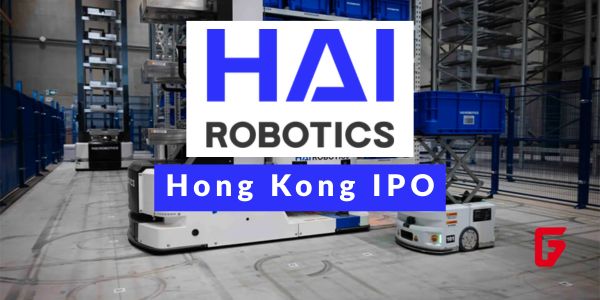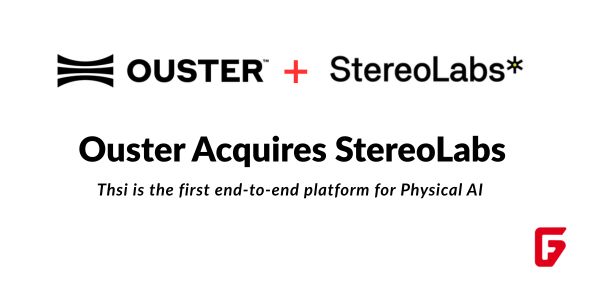Startups & Business News

Tech billionaire Reid Hoffman—best known as LinkedIn’s co-founder—is making headlines again, this time with a high-stakes bet on the future of brain health. Hoffman recently led a $12 million funding round for Sanmai Technologies, a stealth-mode startup merging artificial intelligence and ultrasound technology to tackle mental health and cognitive wellness.
The New Frontier: AI Meets Ultrasound
Tech billionaire Reid Hoffman—best known as LinkedIn’s co-founder—is making headlines again, this time with a high-stakes bet on the future of brain health. Hoffman recently led a $12 million funding round for Sanmai Technologies, a stealth-mode startup merging artificial intelligence and ultrasound technology to tackle mental health and cognitive wellness.
The New Frontier: AI Meets Ultrasound
Sanmai’s approach stands out in a crowded brain-tech field. Instead of invasive implants or daily medications, the company is developing a sub-$500, non-invasive headset that uses low-intensity focused ultrasound to stimulate targeted brain regions. This method, backed by years of clinical research, aims to address anxiety, depression, and cognitive decline without the side effects or risks associated with traditional treatments.
What sets Sanmai apart is its integration of AI. The headset’s AI assistant not only guides users through personalized therapy but also tackles technical challenges like skull distortion, adapting the treatment to each individual’s unique brain anatomy. This level of personalization is rare in the mental health tech space and could significantly improve outcomes.
The Bigger Picture: A Consumer-First Approach
While other brain-tech ventures—like Elon Musk’s Neuralink—are focused on surgical implants, Sanmai is betting on a lower-risk, consumer-friendly model. Their device is designed for home use, putting advanced mental health tools directly in the hands of everyday people. The company is already running clinical trials for generalized anxiety disorder in Sunnyvale, and is in discussions with the FDA to further validate its approach.
Hoffman’s investment signals a broader trend: tech billionaires are increasingly interested in funding innovations that push the boundaries of brain science. With over 20 companies now vying for leadership in this emerging market, Sanmai’s blend of science, safety, and AI could give it a real shot at reshaping how we think about—and treat—mental health.
Why This Matters for the Tech Industry
For tech enthusiasts and investors, Sanmai’s story is a reminder of how rapidly the landscape is evolving. The combination of AI and ultrasound opens up new possibilities for non-invasive brain therapies, potentially making advanced mental health care more accessible and affordable. And with Hoffman’s backing, Sanmai has the momentum and credibility to make a real impact.
As the brain-tech race heats up, it’s worth watching how companies like Sanmai balance innovation with safety—and whether their consumer-first approach can truly revolutionize mental health care.

futureTEKnow
Editorial Team
futureTEKnow is a leading source for Technology, Startups, and Business News, spotlighting the most innovative companies and breakthrough trends in emerging tech sectors like Artificial Intelligence (AI), Robotics, and the Space Industry.
Discover the companies and startups shaping tomorrow — explore the future of technology today.
Trending Companies
Latest Articles

Dwelly Raises $93M to Supercharge AI-Powered UK Rentals Roll-Up
London startup Dwelly just landed $93M to snap up UK rental agencies and inject AI smarts. Founders from Uber and

Encord Raises $60M Series C: Fueling Physical AI Data Wave
Encord just landed $60M in Series C funding to supercharge data tools for physical AI. Founders Eric Landau and Ulrik

Foodforecast Raises €8M Series A to Slash Ultra-Fresh Food Waste with AI
Foodforecast, a Cologne AI foodtech firm, just scored €8M in Series A funding led by SHIFT Invest. Their tools predict

AI-Driven Operational Excellence: How Leaders Scale Ownership, Discipline, and Continuous Improvement in 2026
In 2026, AI scales operational excellence fundamentals—clear ownership, disciplined execution, and continuous improvement—letting leaders focus on outcomes while systems handle

VoiceLine raises €10M to scale voice AI for enterprise frontline teams
Munich-based VoiceLine has closed a €10M Series A round to grow its voice AI platform for frontline sales and service

AI-Driven Logistics & Distribution Transformation: From Insight to Scalable Impact
AI is redefining logistics transformation—from network design to real-time execution. This article explores how data-driven insight, intelligent automation, and scalable

Hai Robotics Hong Kong IPO: From Startup Funding to Warehouse Robot Leader
Shenzhen’s Hai Robotics, pioneer in ACR warehouse robots, files for HK IPO after raising over $500M in funding rounds led

AI-Enabled Process Engineering & Continuous Improvement: Designing Systems That Learn
Explore how AI transforms process engineering and continuous improvement into self-learning systems. This article explains how organizations can design operations

Ouster Acquires StereoLabs: Unified Physical AI Sensing Platform Launches
Ouster’s $35M StereoLabs acquisition fuses lidar and ZED cameras into end-to-end Physical AI sensing. Founders Cecile Schmollgruber and team drive

Bretton AI Lands $75M Series B Funding to Scale AI Agents for Financial Crime and AML/KYC Compliance
Bretton AI’s $75M Series B modernizes AML KYC compliance via AI agents, slashing staffing costs for banks and fintechs like

Axiom Space Raises $350M to Build Commercial Space Station and NASA Spacesuits
Axiom Space has locked in a fresh $350M raise to push its commercial space station and NASA lunar spacesuits toward

Santé Raises $7.6M Seed: AI Fintech Revolution for Wine and Liquor Retail
New York startup Santé secures $7.6M seed to build AI-powered POS for liquor stores, tackling regs & inventory woes after
futureTEKnow is focused on identifying and promoting creators, disruptors and innovators, and serving as a vital resource for those interested in the latest advancements in technology.
© 2026 All Rights Reserved.
![Discover the top 10 AI companies in Germany [1st Edition], revolutionizing industries with cutting-edge technology and innovations.](https://futureteknow.com/wp-content/uploads/2025/02/Top-10-AI-Companies-in-Germany-Leading-the-Tech-Revolution-futureTEKnow.jpg)







